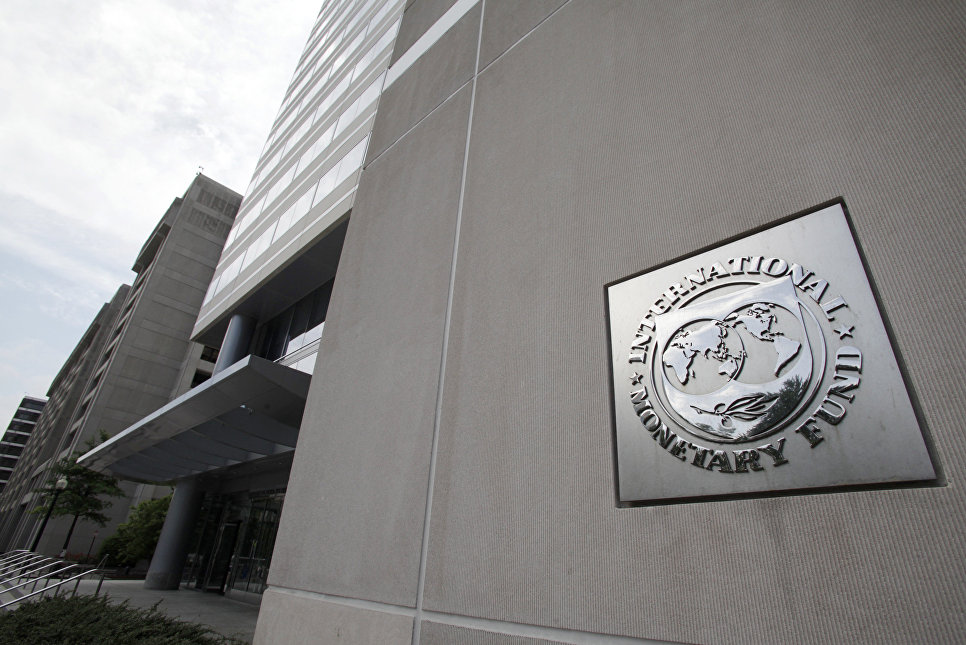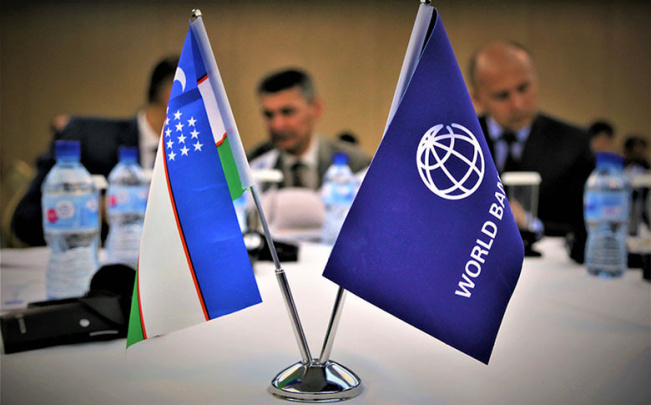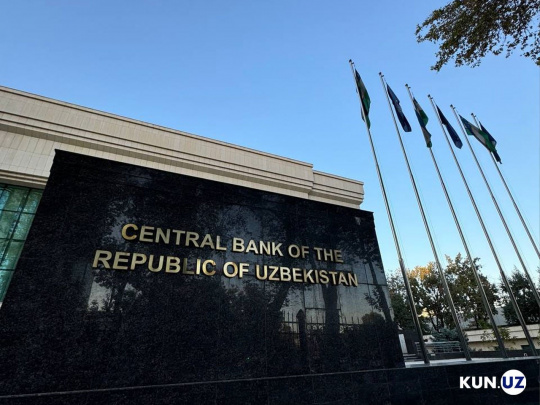Monetary policy in Uzbekistan should remain tight to continue to reduce inflation – IMF
An International Monetary Fund staff team, led by Yasser Abdih, met with the authorities of Uzbekistan during December 11–19, 2023 to discuss economic developments and prospects, and policy priorities.

Photo: AFP
After completing his visit, Yasser Abdih issued the following statement:
Uzbekistan’s economy has demonstrated remarkable resilience to recent global challenges.
Following geopolitical shocks, the economy saw an influx of migrants and a large increase in remittances in 2022, boosting domestic demand. This, coupled with higher external demand, led to real GDP growth of 5.7 percent in 2022. While remittances have fallen this year to the trend prevailing prior to Russia’s war in Ukraine, a sizable fiscal expansion and high wage and export growth are expected to sustain real GDP growth at 5.7 percent in 2023.
Strong imports and declining remittances will contribute to a higher external current account deficit this year. International reserves are expected to remain ample at eight- and one-half months of prospective imports. By end-2023, the 12-month inflation rate is projected to decline by more than 3 percentage points – compared to the same period last year – to 9 percent, helped by a high real policy rate, a value-added tax rate cut, and lower international food and energy prices.
The outlook for 2024 remains positive, but risks remain.
Despite needed fiscal consolidation, growth is projected to remain above 5 percent.
The external current account deficit will increase modestly as gold exports decline to trend levels offsetting slower import growth related to public spending restraint.
External risks stem from a possible deterioration of growth in key trading partners (notably China and Russia) and further tightening of external financial conditions. Domestic risks include contingent liabilities from state-owned financial and non-financial enterprises (SOEs) and public-private partnerships (PPPs).
Preserving macro-financial stability and continuing structural reforms are key to bolstering resilience and sustaining robust economic growth amidst the challenging current global context.
Fiscal policy needs to return to a consolidation path after the expansionary stance in 2023. Staff’s estimate of the consolidated fiscal deficit (national definition) is expected to reach 5.5 percent of GDP in 2023, exceeding the 3 percent of GDP budget target due to additional wage hikes as well as higher social benefits, energy subsidies, and policy lending. The government appropriately aims to reduce the consolidated deficit to 4 percent of GDP in 2024 and 3 percent in 2025. This will rebuild fiscal buffers to respond to potential shocks and help reduce inflation, which particularly benefits the poor. The consolidation is to be achieved by better targeting of social benefits, cutting policy lending, and reducing untargeted energy subsidies while protecting the vulnerable by introducing a social consumption norm. Removal of tax exemptions and efforts to reduce the shadow economy will complement the expenditure measures.
Improving budget planning will facilitate better outcomes with fewer resources and minimize deviations from fiscal targets. This includes strictly adhering to the budget calendar, unifying the investment budget irrespective of the financing source and preparing it together with the recurrent budget, and limiting the frequency of within-year changes, as frequent changes complicate budget execution and are unlikely to improve budget outcomes. Continued efforts to improve the measurement and management of fiscal risks, especially from SOEs and PPPs, are needed to ensure that the planned fiscal consolidation is realized.
Monetary policy should remain tight to continue to reduce inflation. Needed increases in administered energy prices are expected to raise inflation. However, the effect will be partially offset by continued tight monetary policy and a sizable fiscal consolidation. Staff welcomes the commitment of the Central Bank of Uzbekistan (CBU) to keep monetary policy relatively tight until inflation decelerates clearly toward the target and to raise the policy rate if core inflation surprises to the upside. Efforts to strengthen monetary policy transmission, which remains constrained by a low level of financial intermediation, high dollarization, and still sizable policy lending, should continue. Exchange rate flexibility is important to absorb potential shocks and safeguard reserves.
Financial sector reforms need to continue to safeguard stability. Despite tight monetary policy, credit growth remains high, particularly for car loans, microcredit, and mortgages. The CBU has appropriately tightened loan-to-value ratios and introduced concentration limits for banks. Additional supervisory and macroprudential measures would help ensure banks assess the creditworthiness of borrowers and limit the risk of declining asset quality. The authorities’ continued efforts are needed to bolster corporate governance and transparency of state banks and further reduce policy lending. These measures would facilitate bank privatization, level the playing field, deepen financial intermediation, and improve access to financial services.
Continued implementation of structural reforms is key to sustaining robust growth. The government has improved the transparency of public procurement, strengthened reporting and the management of SOEs, and privatized a large bank and several state enterprises. An increase in energy prices for businesses was implemented and the Law on Competition became effective in October 2023. Further reforms were announced in September and October 2023, including the creation of an independent energy regulator and the unbundling of the railway sector, and measures were adopted towards addressing climate change. Nevertheless, additional measures are needed to increase energy prices to at least cost recovery levels, enhance governance and transparency (including for SOEs), further restructure and privatize state enterprises, and strengthen competition policies to reduce the state’s role in the economy. Accelerating World Trade Organization negotiations and cooperating with neighboring countries to improve transport routes will reduce transportation costs and open new markets for Uzbekistan’s products.
Recommended
List of streets and intersections being repaired in Tashkent published
SOCIETY | 19:12 / 16.05.2024
Uzbekistan's flag flies high on Oceania's tallest volcano
SOCIETY | 17:54 / 15.05.2024
New tariffs to be introduced in Tashkent public transport
SOCIETY | 14:55 / 05.05.2023
Onix and Tracker cars withdrawn from sale
BUSINESS | 10:20 / 05.05.2023
Latest news
-
Uzbekistan tops medal table at Asian Cadet Judo Cup in Kazakhstan
SPORT | 18:42 / 05.07.2025
-
Uncertainty grows as new homes remain without gas supply
SOCIETY | 17:46 / 05.07.2025
-
Uzbekistan plans to launch national ferry service in Caspian Sea
SOCIETY | 16:03 / 05.07.2025
-
Dozens of violations, zero accountability: Fergana police cancel fines for chief’s wife’s car
SOCIETY | 16:02 / 05.07.2025
Related News

16:15 / 04.07.2025
World Gold Council: Uzbekistan tops global gold sales in early 2025

17:16 / 02.07.2025
World Bank: Uzbekistan needs more exports, less state control to sustain growth

12:15 / 02.07.2025
IMF: Uzbekistan’s public-private partnerships could burden future budgets

17:35 / 01.07.2025



